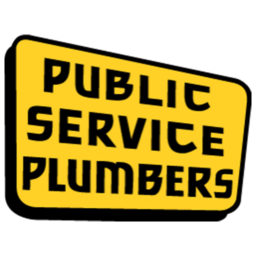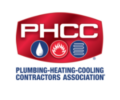Interior Gas, Water & Drain Piping
Behind the walls and under the floors of your home is a complex system of pipes that carry water and gas and allow for wastewater drainage. If constructed and installed properly, the average homeowner is unlikely to encounter many problems with interior gas and water piping.
However, depending on your home’s age, the materials used, and the piping techniques employed, there are certain risks every homeowner should be aware of.
For example, under the sink in many older homes, an “s trap” configuration was used for connecting the sink to the main sewer line. The problem with an s trap is its potential for trapping dangerous sewer gas, allowing it to enter your home. Best practices today recommend that a “p trap” be installed to prevent sewer gas from entering your house.
Why Hire a Pro?
Pipe repair and replacement require the knowledge and tools of a trained professional. Attempting any work on your interior piping can cause:
- Harm to yourself and others: Improper repair or replacement can result in leaks. Gas leaks pose a severe health risk to occupants in the home.
- Damage: Even a minor repair can cause significant damage to your home, pipes, and drains when done incorrectly. Plus, your insurance provider can deny coverage if property damage occurs due to DIY interior pipe repair.
- Local codes: If your repair or replacement doesn’t meet local code requirements, it can create significant issues and cost you additional money and time.
DIY pipe projects can take twice as long, and the risks aren’t worth it. Call 214-753-4633 or contact Public Service Plumbers.
Vents, Pipes & Plumbing
Understanding the drain-waste-vent system in a home is essential to prevent potential problems with the interior piping of your house. The drain-waste-vent system carries wastewater from your home to the city main, collecting water from your sinks, showers, toilets, and appliances.
To ensure waste is removed effectively, vent pipes remove sewer gases while allowing air to enter the system to help wastewater flow freely through your pipes. Vent lines and drain pipes are connected to a “soil stack,” where sewer gases are vented through the roof of your house.
Preventing Problems: Upgrading Your Interior Piping System
If you have an older home or are installing or replacing bathroom fixtures or appliances, you may want to consider upgrading certain features on your interior piping system. For example, air admittance valves are different from conventional pipe venting systems.
Air admittance valves are one-way, pressure-activated vents that increase venting efficiency and reduce the likelihood of long-term maintenance problems. Similarly, if you have older piping, you may want to consider replacing as much of it as you can with new materials that won’t rust or degrade.
Contact Dallas-Area Public Service Plumbers
Public Service Plumbers has been in business for over 60 years, serving individuals, families, and businesses throughout the Dallas–Ft. Worth area. Our plumbers are experienced in repairing and installing all major brand appliances.
We use the latest technology to inspect pipes to minimize cutting into walls or digging up water and gas lines, saving our customers money in the long run.
If you have questions about your interior gas, water, or drain pipe system, call Public Service Plumbers at 214-753-4633 to speak with a plumbing professional.
FAQs
Can pipes freeze in Dallas?
If a cold front brings temperatures of 20°F or lower, interior plumbing pipes can freeze. Follow our Dallas–Fort Worth winterization tips to prevent frozen pipes.
How do I know when to replace my pipes?
Calling a plumber is the best way to determine if you need pipe replacement versus repair. Schedule an inspection with our team if you notice these problems with your pipes:
- Age: Depending on the pipe material, residential plumbing can last 50–70 years.
- Corrosion: If you see flaking on the outside (or worse, flakes in your drinking water), you need pipe replacement.
- Discoloration: Rust- or brown-colored drinking water can indicate corrosion or a leak.
- Lead: Lead pipes are banned, but there may be as many as 270,000 still in use in Texas.
- Leaks: If you need frequent leak repairs, it may be time for whole-house repiping.
- Low or no water pressure: Mineral deposits and other issues can cause reduced water pressure.
Why do I need a plumber for gas line work?
In Texas, it’s illegal for anyone except a licensed plumber to repair, replace, or modify a residential gas line. Let Public Service Plumbers handle the gas lines you use for:
- Built-in outdoor grills or outdoor kitchens
- Clothing dryers
- Fireplaces
- Stoves and ovens
- Swimming pool heaters
- Water heaters






